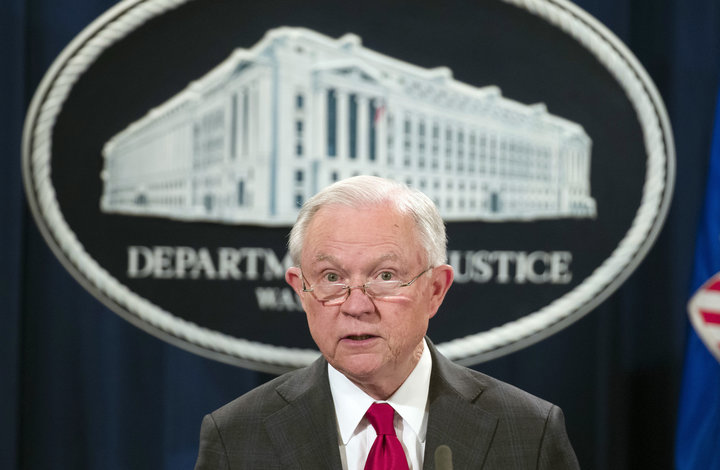In the lead-up to this year’s midterm elections, HuffPost Opinion asked writers to examine the many ways that voting ― a fundamental and hard-won civil right ― is imperiled in the United States. In far too many cases, Americans are blocked from exercising that right. This piece is the first in that series, Democracy Denied.
The Muslim ban. The separation of families at the southern border. The president’s refusal to unequivocally condemn white supremacists. Brett Kavanaugh’s confirmation to the Supreme Court. Attempts to write transgender people out of the law.
The Trump administration routinely takes action that defies our sense of morality; that shatters the boundaries of decency and civility. The fear and anguish evoked by the president’s policies take a personal toll. But change is within our reach. And that’s precisely why Republicans are trying desperately to undermine our right to vote.
At our nation’s founding, voting was enshrined only for educated white men who owned property. It took more than a century for the franchise to meaningfully expand to people of color, women, people with disabilities, people who are low-income and Native Americans. Today, some elected leaders are still working to silence people who were historically denied access to the ballot box. The media is calling voter suppression the Republican party’s “secret weapon.” But there is nothing secret about their playbook.
Change is within our reach. And that’s precisely why Republicans are trying desperately to undermine our right to vote.
To understand that playbook, we must return to June 25, 2013, when five justices on the Supreme Court invalidated key provisions of the Voting Rights Act that for decades protected voters in states with histories of pernicious voting discrimination. Within 24 hours of the Shelby County v. Holder ruling, Texas and Alabama announced plans to plow ahead with restrictive and previously blocked voter-ID laws. And just weeks later, North Carolina passed a monster voter-suppression law that a federal court found had deliberately sought to disenfranchise Black and Latino voters with “surgical precision.”
Now, in the absence of federal enforcement of voting rights and a robust Voting Rights Act, Republicans’ attempts to erode voting rights are written plainly into legislation. And purging of voter rolls, or “voter maintenance,” as Georgia Secretary of State and gubernatorial candidate Brian Kemp calls it, is publicly celebrated as a solution to voter fraud — which nonpartisan studies show is virtually nonexistent. No amount of spin can disguise these tactics from what they are: dog whistle policies designed to confuse voters and ultimately deny their vote. Such policies are enthusiastically endorsed by the president and other members of his party at the federal and state level.
As the former head of the Department of Justice’s Civil Rights Division, I am proud of the Obama administration’s efforts to challenge restrictive voting laws across the country. Sadly, it is a different department today. Under Attorney General Jeff Sessions, the mandate is simple: make it harder to vote. In the 2018 case Husted v. A. Philip Randolph Institute, Sessions reversed the federal government’s position and sided with Ohio’s extreme practice of removing people from voter rolls. Sessions also dropped the DOJ’s objection to a strict voter-ID law in Texas, which a federal judge found to be discriminatory against communities of color. With Sessions at the helm, the Justice Department has abdicated its responsibility to safeguard civil and human rights for all.

ASSOCIATED PRESS
Now, civil rights groups have taken up the mantle to protect and expand the right to vote. In Georgia, where voter registrations for 53,000 people are on hold, The Leadership Conference on Civil and Human Rights, along with the Campaign Legal Center, contacted every person whose registration is pending, to inform them of their rights. Using text messages, the groups let people know they are still eligible and can vote if they show up to the polls with proper identification.
Further, All Voting is Local is removing barriers between voters and the ballot, particularly in historically disenfranchised communities. In Florida, after a federal court struck down a ban on early voting at public universities, the organization worked with local election officials to help college students vote early on their campuses.
That was not an isolated win. In courtrooms and statehouses across the country, we are seeing voting rights prevail. The issue is even showing up on the ballot in several states this week.
Among them is Florida, where voters have the opportunity to restore the franchise for an estimated 1.4 million people with felony convictions. If passed, Michigan’s Proposal 3 will enact a sweeping modernization of voting, including automatic voter registration and extended registration deadlines up until, and on, Election Day.
With Sessions at the helm, the Justice Department has abdicated its responsibility to safeguard civil and human rights for all.
Still, structural change is no substitute for people showing up to the polls. Trump and his ilk are working hard to suppress the vote, which is why it’s all the more important for every one of us to vote, and to get our friends and family to do the same. We cannot let up.
Just look at this year’s primary results. Because people across America voted their values, more women won primaries in House and Senate races than ever before. Vermont’s Democratic Party because the first major party to nominate a transgender candidate for the governorship, and a record number of African-Americans won their gubernatorial primaries. Michigan and Minnesota are soon to elect the first Muslim women to serve in Congress.
Those wins are not flukes in the system. Over the last two years, people have exercised their power by registering to vote, many for the first time. They stepped off the sidelines and chose to participate in democracy by marching, calling and writing their legislators, signing petitions, organizing and talking about politics at the dinner table — a simple but radical act for many of us. Now, the field of political candidates looks more like America than ever before. We are better for it.
Diverse leadership will shine a light on critical issues that for too long have been swept under the rug, dismissed or treated with contempt: police accountability, health care, protections for Dreamers and LGBTQ communities, workplace safety and equity, reproductive justice and rights for people with disabilities. People’s lives hang in the balance. If these issues are to be addressed, we must elect leaders who insist they are top of the agenda. Our votes can move the nation to a place where justice and fairness are no longer mere ideals, but the values driving the decisions of elected leaders every day.
These elections could be the most important of our lifetime. As you head to the polls, know this: We have the power. We are the difference. Despair is the enemy of justice. If you are fed up, speak up — and vote. Together, let’s call forth a new vision for America.
Vanita Gupta is the president and CEO of The Leadership Conference on Civil and Human Rights.










